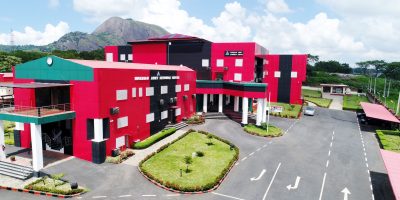A Guest Speaker at the Nigerian Army Resource Centre monthly lecture series Professor Ahmadu Sesay of the University of Ilorin, has said that a successful war against terrorism and insurgency require stronger political will to succeed. He stated this at the 6th Nigerian Army Resource Centre Lecture Series, with the theme “COUNTERING INSURGENCIES AND TERRORISM IN SAHEL SAHARAN STATES: CHALLENGES AND PROSPECTS”, held at Hall A of the NARC, Abuja recently.
Speaking further, Professor Sesay, said that perception is very critical in the early years of insurgency and terrorism because the response could be determined by the policy maker’s understanding of the situation which may be totally different from reality.
He also urged the government to ensure greater coordination of the key security and non-security institutions involved in counter-insurgency and counter-terrorism operations. He emphasized on the urgent need to involve a critical group that has so far been side-lined by countries and multi-lateral institutions in the region in the search for effective responses to insurgencies and terrorism, most particularly the ‘private business’ sector.
[images_grid auto_slide=”no” auto_duration=”1″ cols=”three” lightbox=”yes” source=”media: 4637,4636,4638″][/images_grid]
He added that Women must also be involved in the search for enduring peace and security in the Sahelian States. Professor Sesay also re-iterated the need for a comprehensive educational and sensitization campaign to curb violent extremism and radicalization at the earlier stage.
According to him, the slow responses of developing countries and Sahel Saharan States in particular, can be likened to what Barno Called the “BOILING FROG THEORY” in the counter insurgency and counter terrorism war in Sahel Sahara States. According to the theory, this aptly describes the counter-insurgency and counter-terrorism operations.
“For terrorism to be defeated, it is essential that African counter-terrorism and counter- insurgency is holistic, well-funded, underpinned by respect for human rights, and most importantly, backed by strong political will”, he said.
He emphasised that the Sahel, Saharan States should collectively champion multi-lateral efforts to sustainably manage the natural resources around the Lake Chad Basin, including the much-discussed transfer of water from the Great Lakes region, to restore the ecosystem and re-invigorate the livelihoods of communities in the area.
Advising further, he said the most effective response and strategy to defeat insurgencies and terrorism is for each of the states in the Sahel region to give priority attention to an institutionalised good governance; one that is anchored on accountability, rule of law, and respect for human rights.
Need to adopt “whole of society” and “whole of community” approach to counter-terrorism and counter-insurgency operations.
He advised that border screening and profiling could be introduced to deter terrorists from moving freely from one Member Country to another. The modalities of such revisions or modifications of the protocols should be handled by appropriate authorities in the region.
Speaking while declaring the lecture series closed, the Chief of Army Staff (COAS) Lt Gen Tukur Yusuf Buratai, who was represented by the Chief of Policy and Plans, (COPP) LT Gen LO Adeosun appreciated the Guest Speaker for a well delivered lecture, the facilitators and other invited guests for their presence. The COAS further stated that Nigerians should own their problem and develop ingenious ways of solving the contemporary security challenges being experienced, it is pertinent to say that the military should be appreciated for doing their best within its pace and within the limited resources available for continuous efforts towards decimating the terrorists and the insurgence.












